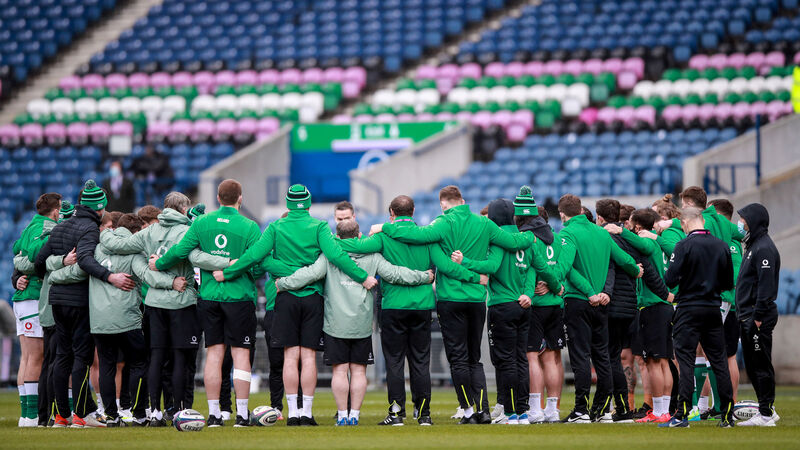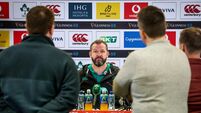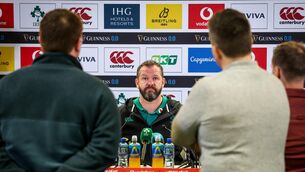Donal Lenihan: Unless Ireland shore up defensive errors, England will tear us apart

The Ireland team huddle ahead of the clash against Scotland. Despite leaving Murrayfield with a win, the performance must improve before the English come to town, says Donal Lenihan. Picture: INPHO/Tommy Dickson
Playing Scotland is fraught with danger for an Irish coaching ticket these days.
While the customary platitudes are voiced by all teams in advance of facing Italy, everyone knows it’s a game you’re not going to lose.













